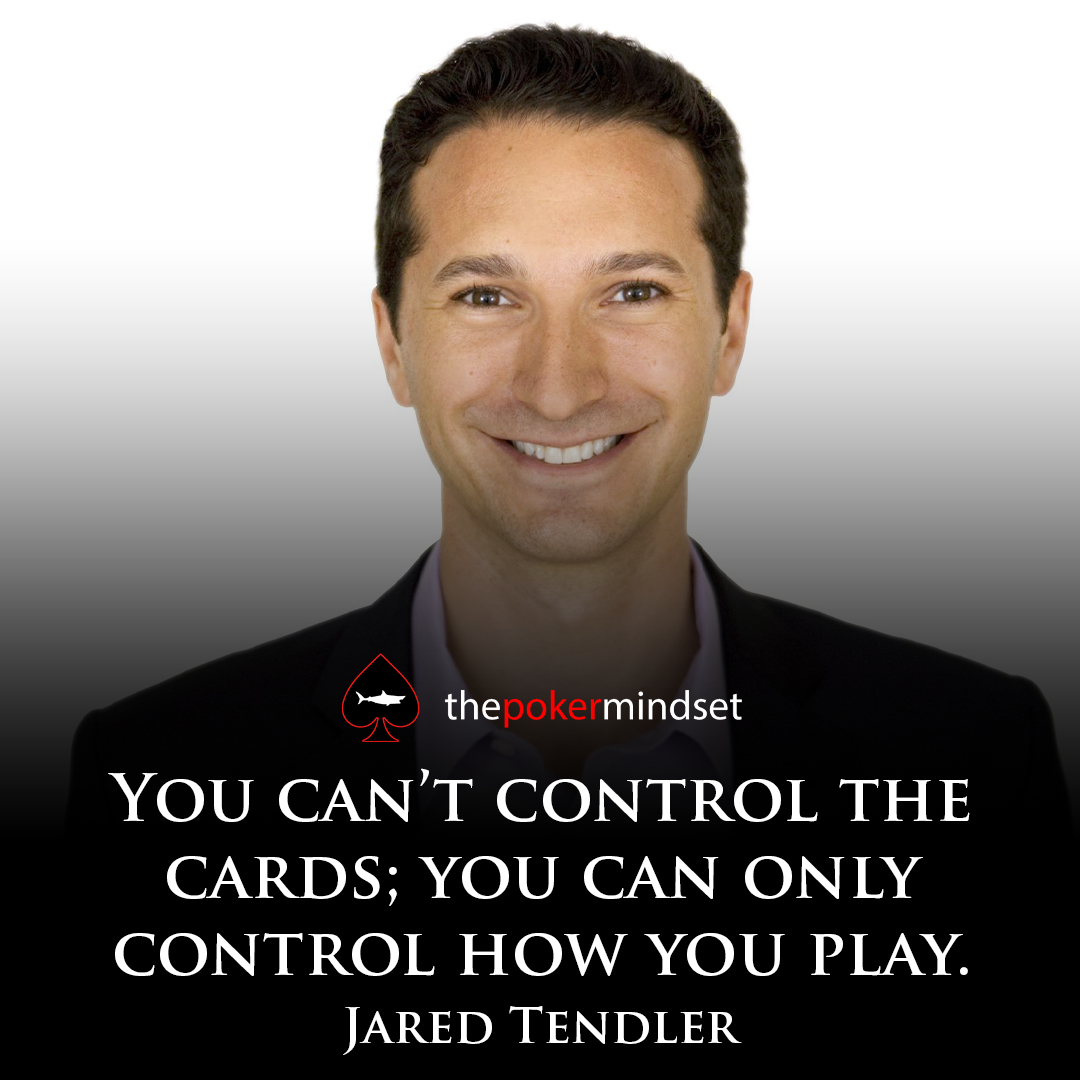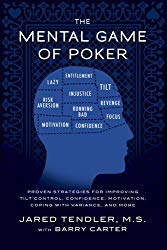The Mental Game of Poker by Jared Tendler is probably the best poker book out there. Reading it can take your game to the next level, especially if you are having problems with tilting, getting angry and dealing with variance.
The mental game may be more important in poker than in any other form of competition. It’s one of the only games in the world where you can play perfectly and lose—again and again. Hundreds of poker players have turned to mental game coach Jared Tendler’s revolutionary approach to help them play their best, no matter how badly they’re running. In this book you’ll find simple, step-by-step instructions and proven techniques to permanently fix problems such as tilt, handling variance, emotional control, confidence, fear, and motivation. With the games getting tougher, now is the time to take these problems head on.
Get this book! Read it, study it, take notes in your poker journal, do the exercises from the book and it’s guaranteed that your poker mindset will improve.
Here are my favorite 20 quotes from The Mental Game Of Poker. Enjoy!
1. There are no magic cures to real mental game problems. If you want to improve, you have to put in the work. Sure, it’s going to come easier for some players than others. So what? If you have goals you want to achieve in poker, don’t let tilt, fear, motivation, or confidence problems deter you. The reward is out there right now for those players willing to do what’s necessary.
2. Stop complaining. There is always something to learn.
3. You control how you respond to the cards, not what cards are dealt.
4. View money as an investment in your edge. Your investment isn’t going to yield a return every time you play poker.
5. Having a greater understanding of another player’s mental game leaks can help you create an edge where few people can claim to have one.
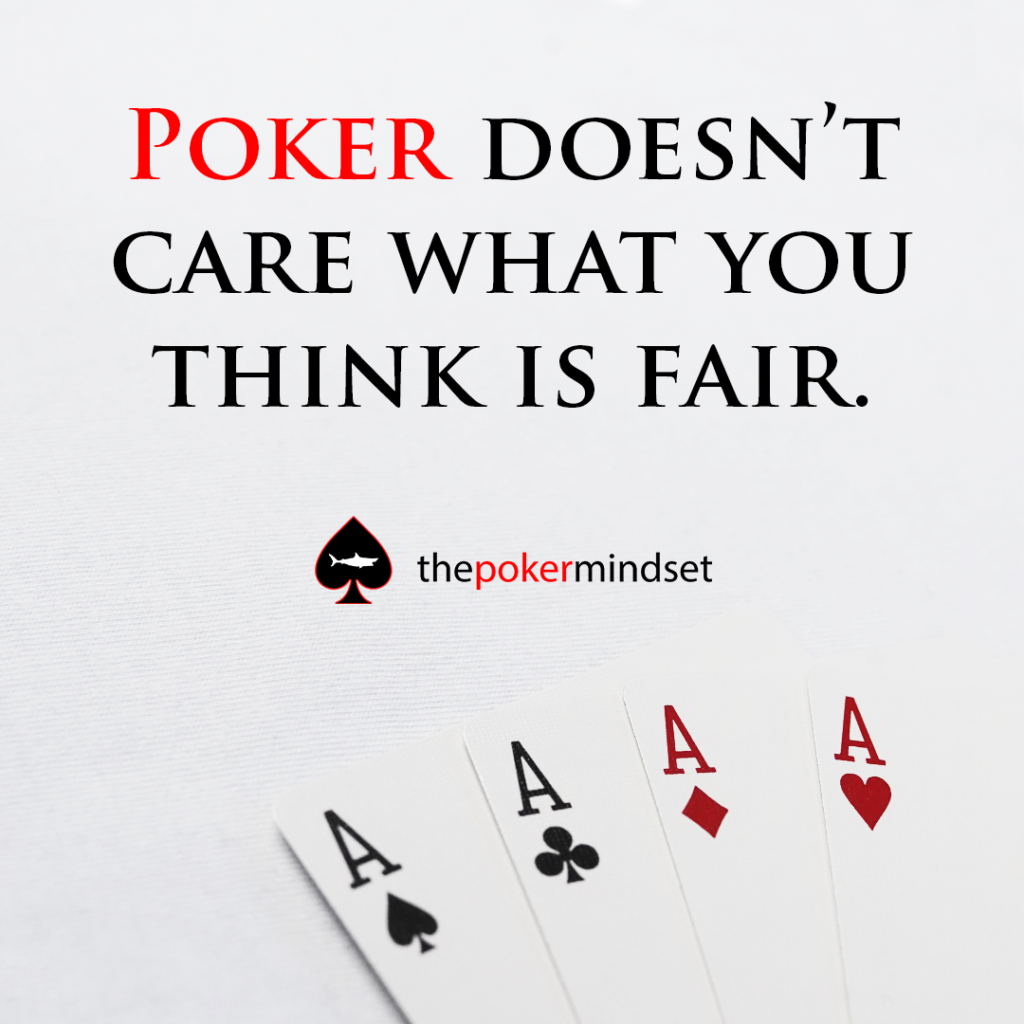
6. Poker doesn’t care what you think is fair.
7. A given skill is mastered only when consistently performed under intense pressure. If this isn’t the case, keep working on this skill until it’s proven to consistently show up under pressure.
8. Players often fall into a trap where they believe that losing money also means their skill has disappeared. When losing and on tilt, they suddenly think they suck. This is just an illusion of the mind. Skills learned to the level of Unconscious Competence are owned and never disappear—even when on tilt.
9. You can’t control the cards; you can only control how you play.
10. When a good run fuels your dreams of how good of a poker player you can be, you’re set up to tilt when poker slaps you awake. You’re a mental fish when you believe you should never lose.
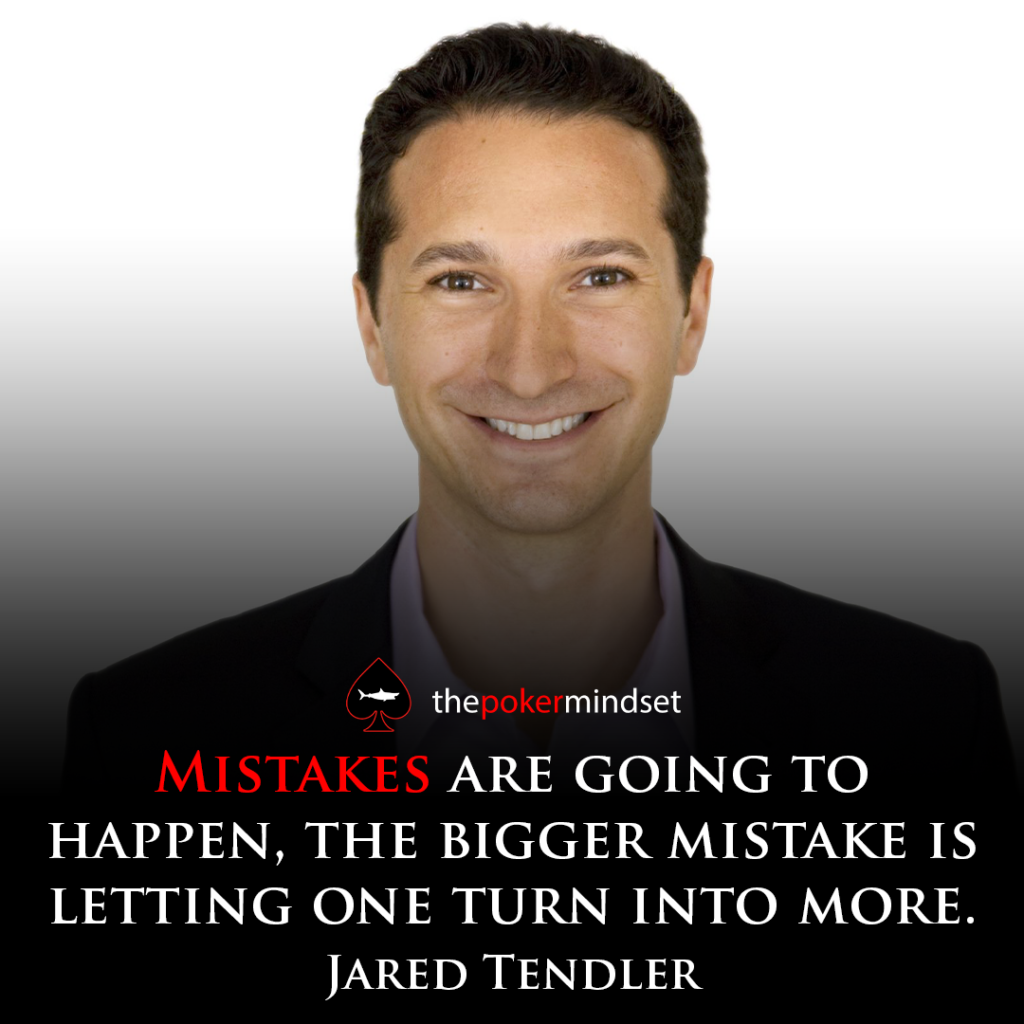
11. Mistakes are going to happen, the bigger mistake is letting one turn into more.
12. If you want to stop procrastinating, you first must eliminate the belief, “there’s always tomorrow.” Today is when improvement happens, not just in your game but also in reducing procrastination. Today is your only opportunity to improve. Tomorrow is a fantasy.
13. You’re a shitty psychic and can’t predict when it’s going to turn around. All you can do is keep playing well.
14. Poker offers endless opportunity for delusion. Thanks to variance, you can choose to believe that you are unfortunate when you lose, and that you crushed the game when you win. That’s how you can end up playing in games that you have no place being in and losing a lot of money, while all the time blaming the poker gods for your losses.
15. Adding process-oriented goals is especially important in poker because you have control of your ability to achieve these goals in the short run.
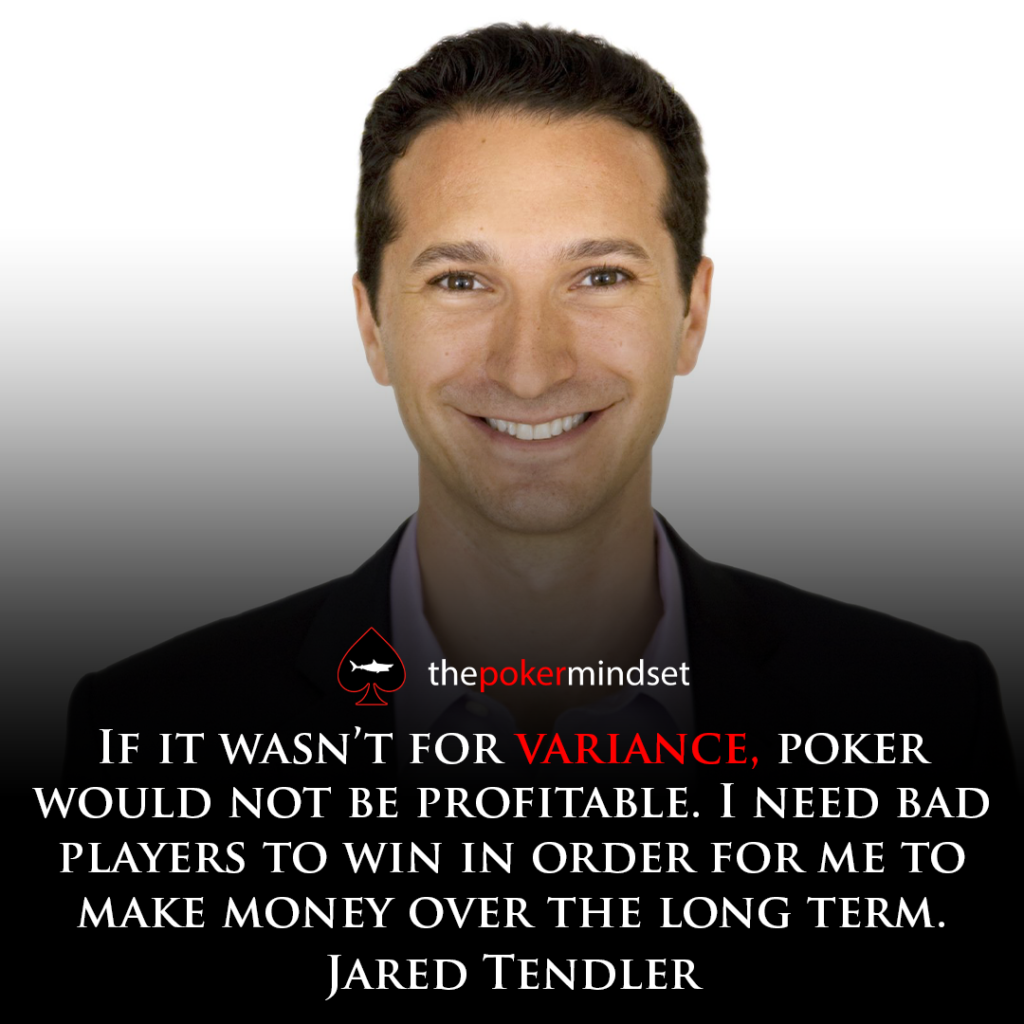
16. If it wasn’t for variance, poker would not be profitable. I need bad players to win in order for me to make money over the long term.
17. The real problem with entitlement tilt isn’t that you believe you are a better player than your opponents. In many cases, that’s probably true. The real problem is that you believe being a better player means you should never lose. Pay close attention to what this belief is essentially saying about your mindset and the real issue emerges: overconfidence.
18. Much like a person addicted to drugs will do anything to score their next fix, a poker player desperate to win their money back will do almost anything to win. Actually that’s not true; they won’t do anything. The distinction between what they will and will not do determines whether they have a performance issue or a gambling problem.
19. Desperation tilt is like a trap door that lies beneath each type of tilt —most commonly hate-losing tilt—waiting to drag you into poker hell. Poker players with desperation tilt hate walking away from the table stuck,and simply don’t want to end a session down money no matter how long it takes to win. The longer and deeper the losses get, the worse they play, the stronger the anger becomes, and the more likely they’ll be to do something drastic such as jumping up in stakes, shoving any hand, or straddling every big blind.
20. Believing that you couldn’t lose to a fish doesn’t change the fact that you did

